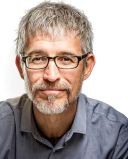Creativity
The Paradox of Expertise
How range, not just specialization, preps us for success.
Posted June 27, 2019 Reviewed by Matt Huston

We tend to glorify the people whom we consider ‘masters’ of their craft. Just look at the celebrity chef craze that has taken the world by storm over the past decade. We praise the long, grueling hours chefs like Thomas Keller or David Kinch put into mincing, filleting, and sautéeing until cooking became second nature to them. Their precocity and all-consuming passion to become the best in their field are held up as the reasons for their success. In the culinary world, as in most professions, the stories of the few set an arbitrary bar impossibly high for the many.
Being the meritocratic society that we are, Americans revere excellence. We celebrate the Thomas Kellers, Steve Wozniaks, and Serena Williamses of the world because their success stories are more exciting than the far more common tale of the “jack-of-all-trades,” or even that of the reasonably accomplished chef, programmer or tennis player. The reality is that despite the praise we heap on these prodigies, the majority of us build skills in a wide range of fields rather than specialize in any given one. Fortunately, research has shown that this may be to our advantage.
The Case for Range Over Mastery
Expertise requires laser focus on a highly specific topic coupled with decades of practice. While this path can lead to immense success, it can also narrow our long-term vision because we begin to base our beliefs and worldview on known facts and ingrained habits, rather than opening ourselves to new possibilities and surprise. In other words, too much expertise can actually hinder our creativity.
Countless studies on skill acquisition have tried to pin down that special element that makes a “master.” While anyone can (hypothetically) practice and learn how to write an opera, researchers wanted to know what makes some operas great while others flop. Can the creativity or innovation impulse that defines so many “masters” be acquired just like the knowledge necessary to excel in their fields? One such study by Dean Keith Simonton in 2000 aimed to answer this question.
Simonton evaluated the success of 911 operas by 59 classical composers using seven measures of domain-relevant experience. While expertise acquisition did play a role in the success of some operas, in other instances too much knowledge seemed to hamper their success. Simonton concluded that this kind of ‘‘functional fixedness’’ can blind a person to the insights essential solving difficult problems. While one needs to put in the time to learn the mechanics of any given field, one must branch out or “cross-train” to develop creative versatility in order to advance to the level of mastery. In summary, diverse knowledge and experiences are essential to creativity.
With this research, it seems contradictory that we would choose to specialize even further as life gets more complex. Author David Epstein sums up the paradox of expertise in his recent book Range: Why Generalists Triumph in a Specialized World: “The response in every field to a ballooning library of human knowledge and an interconnected world has been to exalt increasingly narrow focus.” The underlying assumption driving this trend is that specialization leads to achievement; however, Epstein suspected the path to success was more complicated than 10,000 hours of deliberate practice. Over the course of years, he analyzed the world’s most successful athletes, artists, innovators, musicians, forecasters, and scientists. He found that across the board, generalists (rather than specialists) were more likely to succeed, especially in capricious and complex fields.
Foxes and Hedgehogs
The groundbreaking study on the pitfalls of expertise came about in the context of the Cold War during the 1980s. Psychologist and political scientist Philip E. Tetlock collected predictions from 284 political and economic experts over the course of 20 years. These experts averaged 12 years of experience in their respective fields, moved in elite circles, had access to classified information, and yet many of their predictions were wildly off base.
As Tetlock details in his book on the study’s findings, about 25% of “guaranteed outcomes” never transpired and 15% of outcomes that experts had considered impossible came to pass anyway. More surprisingly, the more experience and credentials they held, the further off the mark experts’ predictions were. When confronted with the facts, these experts stuck to their guns and argued their opinions more fiercely.
One subset of scholars, however, did manage to predict some outcomes correctly. The reason for their success, Tetlock hypothesized, was that they weren’t bound to any particular “expertise” and thus they were able to integrate seemingly contradictory ideas to envision more accurate probabilities. To frame these results, Tetlock borrowed from the philosopher Isaiah Berlin’s interpretation of the ancient Greek proverb: “The fox knows many things; the hedgehog one great thing.”
The hedgehogs (the “experts” in this case) were locked into one worldview based on their years of education and experience. The foxes (or the “integrators”) drew from diverse schools of thought, accepted ambiguity, and approached collaboration with creativity. They welcomed critique, learned from their mistakes, and sought new solutions while the hedgehogs planted themselves firmly in their camps and tried to make outcomes fit their beliefs.
The moral of this study is that novices, laymen, or generalists have a unique advantage over the specialist, and that is wide-ranging curiosity (or wonder, which is the wide-open precedent to curiosity). Foxes are curious about the world and explore different perspectives. They are eager to learn from each other and test their hypotheses. They accept failure and adapt. Curiosity creates space for creativity to flourish. Why then do we promote such singular focus on expertise? And more importantly, how can we avoid that tunnel vision?
The False Promise of 10,000 Hours
Paradoxically, our culture’s fixation on specialization actually inhibits growth in some domains. Not only can it trap us in timeworn, narrow-minded perspectives, but the pressure to excel can allow fear to override our curiosity, and drive us away from walking the difficult path. In Outliers: The Story of Success, Malcolm Gladwell put forward the idea that mastery isn’t some innate gift or rare genius, but rather the result of hard work. While this can be reassuring in that mastery is not simply a matter of ‘you got it or you don’t,’ it can also lead us into the trap of self-doubt, defeatism, overwhelm and procrastination.
Instead of going down the rabbit hole to burnout, we can shake up our work and worldview to give it life. Numerous studies show that generalists are more creative, perceptive, and better at problem-solving than their specialist counterparts. Their breadth of experience predicts breadth of transfer. By learning about something in a variety of contexts, they are better able to create abstract models and apply their knowledge to situations that have never before encountered.
Specialization has its value. When you want a pipe fixed, you call the plumber, not a handyman. But it’s important to remember that we need to be able to see the forest through the trees if we are going to tackle big projects or forge ahead as innovators in our fields. Navigating life requires a diverse skill set, especially in an age in which you need to be technologically proficient to engage, let alone succeed. Rather than strive to be the best in one category, you can embrace curiosity and accumulate diverse experiences to fuel our creativity and thrive.
In the words of deliberate practice researcher Anders Ericsson, “Learning isn’t a way of reaching one’s potential but rather a way of developing it.”




